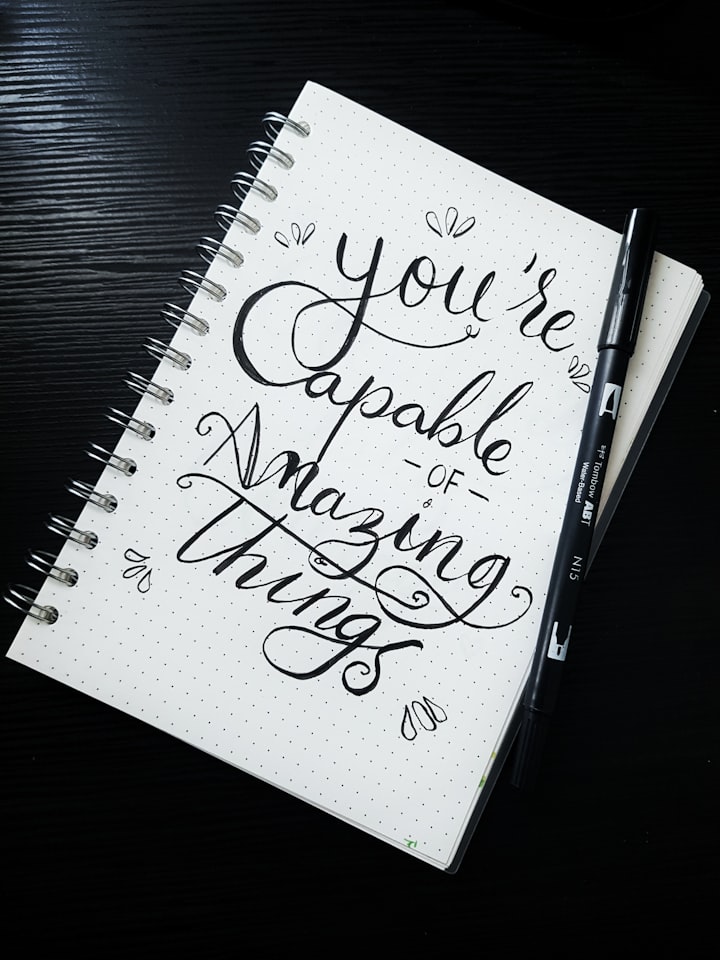A Peer Supporter's Guide to Understanding the Definition of Progress in Our Mental Health Journey's
Why the way I approached progress at the beginning of my mental health journey was wrong?

I used to be just like many of you out there, believing that persistent, challenging thoughts and feelings meant I was either regressing or not moving forward quickly enough in managing my ADHD and generalized anxiety. However, I've learned that our conventional 'in with the good, out with the bad' philosophy, while appealing, oversimplifies the complex realities of our mental health challenges.
Why? For starters, there are many misconceptions because of how society views progress, making it harder for us to recognize and appreciate the strides we make on our journeys. For this reason, it's more important than ever that we approach our mental health and neurodivergent paths with compassion, realism, and resilience. Adopting this mindset fosters an authentic understanding of progress, leading to a more balanced perspective.
It's for this reason I would like to talk about common hurdles we face throughout our mental health journeys that may not feel like growth or progress but are significant signs of progress in our mental health journey.
Seeking Support: A Vital Step No Matter Where We Are in Our Mental Health Journeys
In April 2023, I faced a severe relapse that almost led to hospitalization, ending my five-year period of being relapse-free. This challenging time was a wake-up call, pushing me to address parts of my life I had ignored, like the importance of taking anxiety medication and the repercussions of trusting the wrong individuals. It's crucial to understand that, regardless of our diagnoses or the hurdles we encounter, navigating mental health or neurodivergent conditions is never straightforward.
Why? Mental health conditions are complex medical conditions, which means there might be days when even our best coping strategies fall short, and that's perfectly normal. Acknowledging the need for support is a sign of growing self-awareness and resilience. It indicates that we are committed to our growth and healing.
Our stories, challenges, and diagnoses are integral to our identity — and embracing them is vital. Recognizing when to seek help is a step toward empowering ourselves, advocating for our needs, and taking an active role in our mental health journey. Instead of letting stigma and misinformed people dictate how we relate to our mental health.
Embracing Challenges: A Reminder for Moments of Difficulty
Throughout my journey with anxiety disorder, ADHD, and substance abuse, anytime I started to have a thought about relapsing, feeling powerless, or encountering triggering situations, I felt like a failure. Why? I felt like a failure because I was told it isn't normal to experience certain emotions and was never shown empathy.
But it is normal; I now realize, after spending some time on the other side of recovery, that emotions, triggers, and experiences like grief are tough, and they may not fully dissipate. However, with the right support, you can reframe those experiences. Doing this takes a lot of practice and patience, but in the long run, it's worth it because you're worth it. Why isn't it considered a failure to experience certain emotions or thoughts in our journey, no matter what stage we are in?
We're complex humans, and our diagnoses and symptoms can sometimes make our lives more complex. Different things can trigger or activate our thoughts, feelings, and emotions. For this reason, when I receive support or offer support to others facing mental health challenges, I emphasize that experiencing these things represents progress.
It's about how a person chooses to define and process those experiences. It shows that a person has transitioned from letting those aspects of their mental health define them to empowering themselves to determine how they define those experiences. And even if a person finds certain things challenging, recognizing those moments shows awareness and other valuable skills for empowering us to take a more active role in looking after our mental health.
Going from Feeling Overwhelmed to Self-Empowered and Agency
In our mental health journey, agency and self-empowerment play critical roles in defining and processing various aspects such as treatments, diagnoses, and our sense of self. By taking this step, we demonstrate to ourselves and others that we are mindful about caring for our well-being, thus enhancing our self-efficacy. It shows that we can confidently approach challenges related to our mental health and our lives despite the naysayers and self-proclaimed experts who love to push unsolicited advice and misinformed beliefs and opinions about mental health.
Lastly, I would like to say that in the ongoing journey of mental health and neurodiversity, embracing self-empowerment, agency, and self-efficacy is a game changer. These skills and milestones empower us to see that mental health challenges and conditions are multifaceted and nuanced.
By learning to embrace the aspects of our mental health and emotional well-being, we're taking the first steps to show others and, most importantly, ourselves that we have the power within ourselves to define those aspects of our well-being. We reframe and define our experiences through self-awareness, self-compassion, and our sphere of influence—on our terms with, of course, the help of a qualified professional.
Additionally, a part of agency and empowerment is taking responsibility and owning what we're in control of doing or saying; otherwise, what we do enables us not to improve. By doing this, we are fostering a culture of honesty, transparency, and growth, ultimately leading to greater resilience and well-being for ourselves and our communities.
Living with a mental illness can intensify life's hurdles, often making progress seem slow. However, it's crucial to acknowledge that progress, regardless of size, is significant. Take moments to celebrate the good days, however infrequent, and honor the strength shown in overcoming or coping with the tough days.
References
Lcsw, K. H. (2024, February 17). What Is Resilience? Your Guide to Facing Life's Challenges, Adversities, and Crises. EverydayHealth.com. https://www.everydayhealth.com/wellness/resilience/
Smith, M. (2024, February 5). Building Better Mental Health. HelpGuide.org. https://www.helpguide.org/articles/mental-health/building-better-mental-health.htm
D. (2021, March 16). Take Control of Your Life: The Concept of Agency and Its Four Helpers. Pattison Professional Counseling and Mediation Center. https://www.ppccfl.com/blog/take-control-of-your-life-the-concept-of-agency-and-its-four-helpers/#:~:text=Agency%20is%20the%20sense%20of,face%20of%20conflict%20or%20change
Counseling, T. U. (n.d.). The Liberation of Learning Your Sphere of Influence and Control. Tracy Uttridge Counselling. https://tracyuttridgecounselling.com/therapy-blog/f/the-liberation-of-learning-your-sphere-of-influence-and-control?blogcategory=depression+help
About the Creator
Sandy Pace
I’m a freelance writer with ADHD and anxiety. Who’s passionate about mental health awareness and other related topics. And has written for publications like ADDitude Magazine, Thought Catalog, TotallyADD, and other publications.






Comments
There are no comments for this story
Be the first to respond and start the conversation.